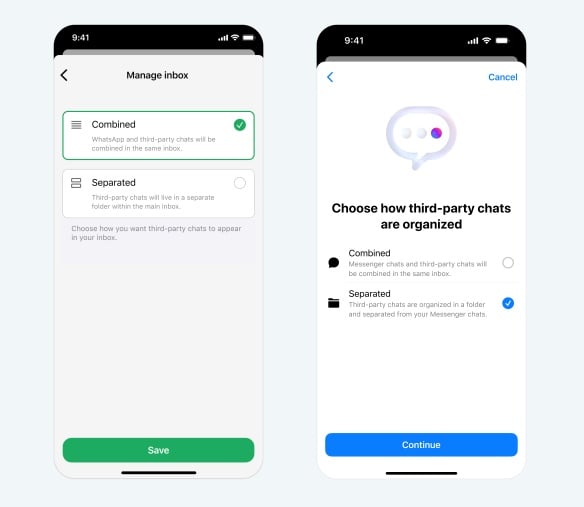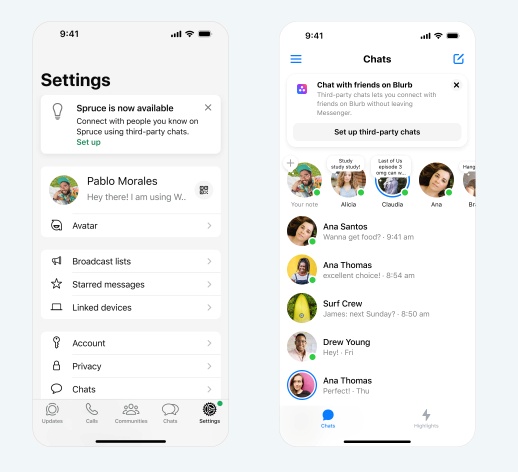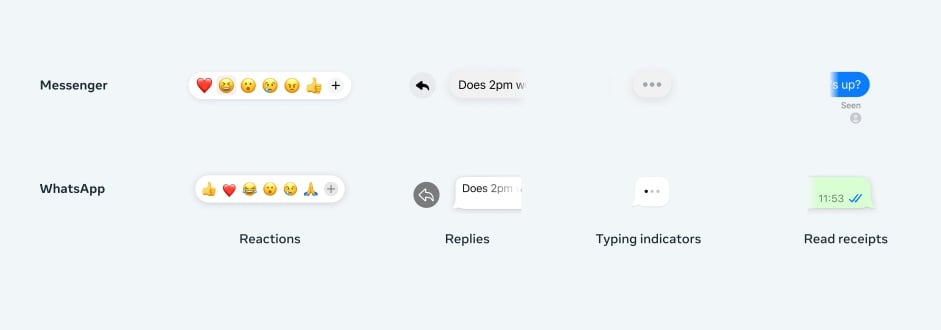What to know
- Meta reveals big changes to WhatsApp that will allow EU users the ability to send and receive messages from third-party messaging services.
- Users can separate their third-party chats or combine them all into a single inbox. These messages will also get rich messaging features like reaction, read receipts, direct replies, and typing indicator.
- In accordance with the DMA, WhatsApp will also include group creation for third-party chats in 2025, and voice/video calling in 2027.
We reported back in January that WhatsApp was working on a feature that would let users send and receive messages from other messaging apps. Now, 8 months later, Meta has finally provided some details on what this would look like.
Users in the European Union will soon get the ability to “keep third-party chats separate from their current inbox” or “combine all chats in a single box.” Users will be able to switch between the two options at any point in time.

The company will also introduce new WhatsApp and Messenger notifications that will let users know whenever there is a new third-party messaging app for them to link chats from.

But that is not all. Meta will also include more advanced features for interoperable messaging, including “rich messaging features such as reactions, direct replies, typing indicators, and read receipts.” So, the experience of sending and receiving messages on WhatsApp will not differ greatly for native and third-party chats.

The company has also stated that it is looking to “include the option to create groups” in 2025, and “voice/video calling in 2027”.
For now, these changes will are being made in accordance with the DMA, and for users in the European Union only.
Interoperability between messaging services is not unheard of. Signal, for instance, has been doing it for years. But with WhatsApp joining the ranks of other “digital gatekeepers” made to change how their services operate, the power has now returned in the hands of the user, at least in the EU. It’ll be interesting to see how other regions learn from EU’s Digital Markets Act and if companies will be required to make similar changes elsewhere.






